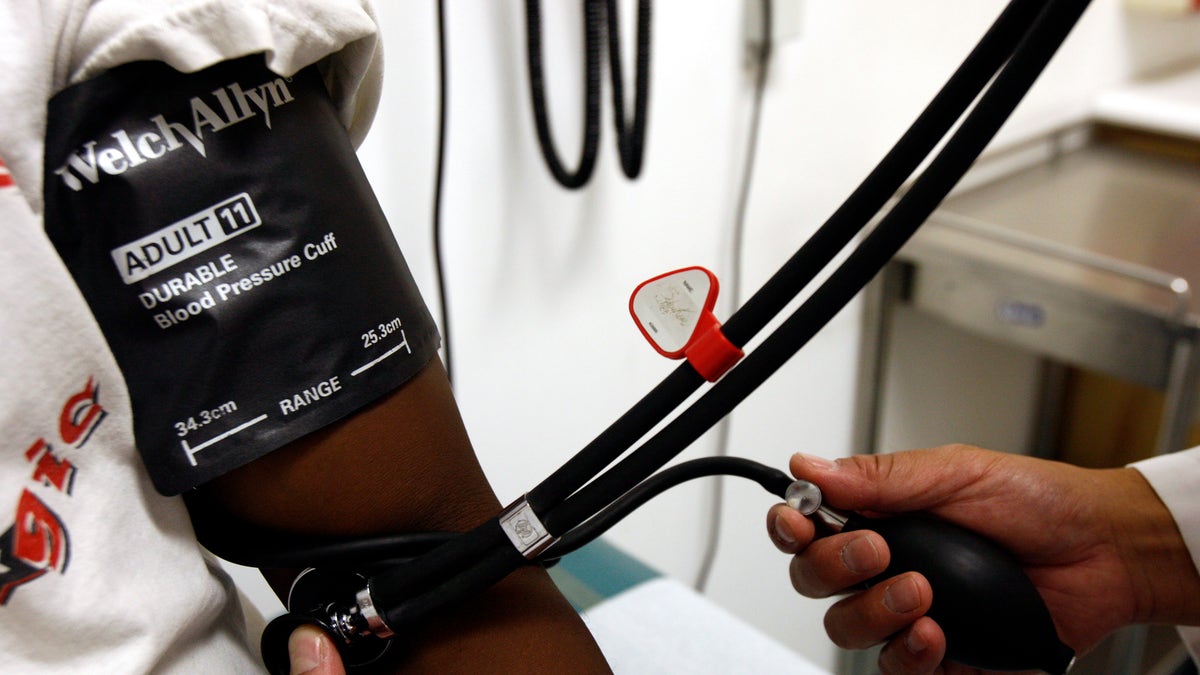
REUTERS/Lucy Nicholson
Low-income black teens with the resilience to succeed in school may be more likely to graduate college and achieve higher incomes than their less persistent peers, but they may also face more health problems as adults, a recent study suggests.
High-striving black youth from the most disadvantaged homes were more than twice as likely to develop diabetes by age 29 as high-achieving black teens from more affluent homes, researchers report in Pediatrics.
Among these resilient black teens, high-strivers from disadvantaged homes may have what's known as "skin-deep resilience" as adults, displaying few outward signs of the stress they endured to succeed in school and work but still having health problems under the surface, said lead study author Gene Brody of the University of Georgia in Athens.
"We reasoned that, if disadvantaged children were succeeding academically and emotionally, they might also be protected from health problems that were more common in lower-income youth," Brody said by email. "As it turned out, the exact opposite was true."
"These young people were achieving success by all the conventional markers: doing well academically, staying out of trouble, making friends, and developing a positive sense of self," Brody added. "Underneath, however, their physical health was deteriorating."
This may be because compared with other participants in the study, they produced more stress hormones, had higher blood pressure, were more obese, displayed a greater susceptibility to infection, and had faster aging of their immune cells, Brody said.
Researchers didn't find this pattern of skin-deep resilience in white youth.
To explore the connection between high achievement in adolescence and health in young adulthood, researchers examined survey data on 1,431 black youth and 3,935 white young people.
The teens participated in one round of surveys when they were 16 that included questions on striving such as their aspirations for education, persistence and avoidance of drugs and other activities that can sidetrack success.
Then, at age 29, participants completed another round of surveys that included questions on college graduation, income, symptoms of depression and type 2 diabetes status.
At the start of the study, 30 percent of black teens lived in households with income below the federal poverty level and 15 percent of the parents were unemployed, researchers report in Pediatrics. By comparison, 11 percent of white teens came from poor households and 6 percent of their parents were unemployed.
Disadvantaged teens at the start of the study were less likely to graduate from college, more likely to have depression and lower incomes than youth that started out with more resources.
When kids were high strivers at 16, they were more likely to get a college degree and have higher income and less likely to be diagnosed with depression.
Poor black kids, but not white teens, however, were more likely to develop diabetes as adults when they were high achievers during their teen years.
One limitation of the study include its reliance on teens to accurately recall and report on factors like their family income, school achievements, and health, the authors note. Researchers also lacked data to assess how skin-deep resilience might apply to Hispanic youth or teens from other racial or ethnic groups.
The study is observational and doesn't prove ambition causes diabetes.
"The reason why this happens is still very much up for debate," said Dr. Gary Maslow, a researcher at Duke University in Durham, North Carolina who wrote an accompanying editorial. "It could be related to the physical effects of chronic stress, with high-strivers from disadvantaged backgrounds facing greater stressors as they strive to succeed."
"However, there are other potential hypotheses that need to be explored as well to fully explain this association," Maslow added by email. "For instance, health behavior choices related to diet and physical activity may also play a role, as young people work hard to achieve academically but may struggle to care well for themselves in other ways."




















